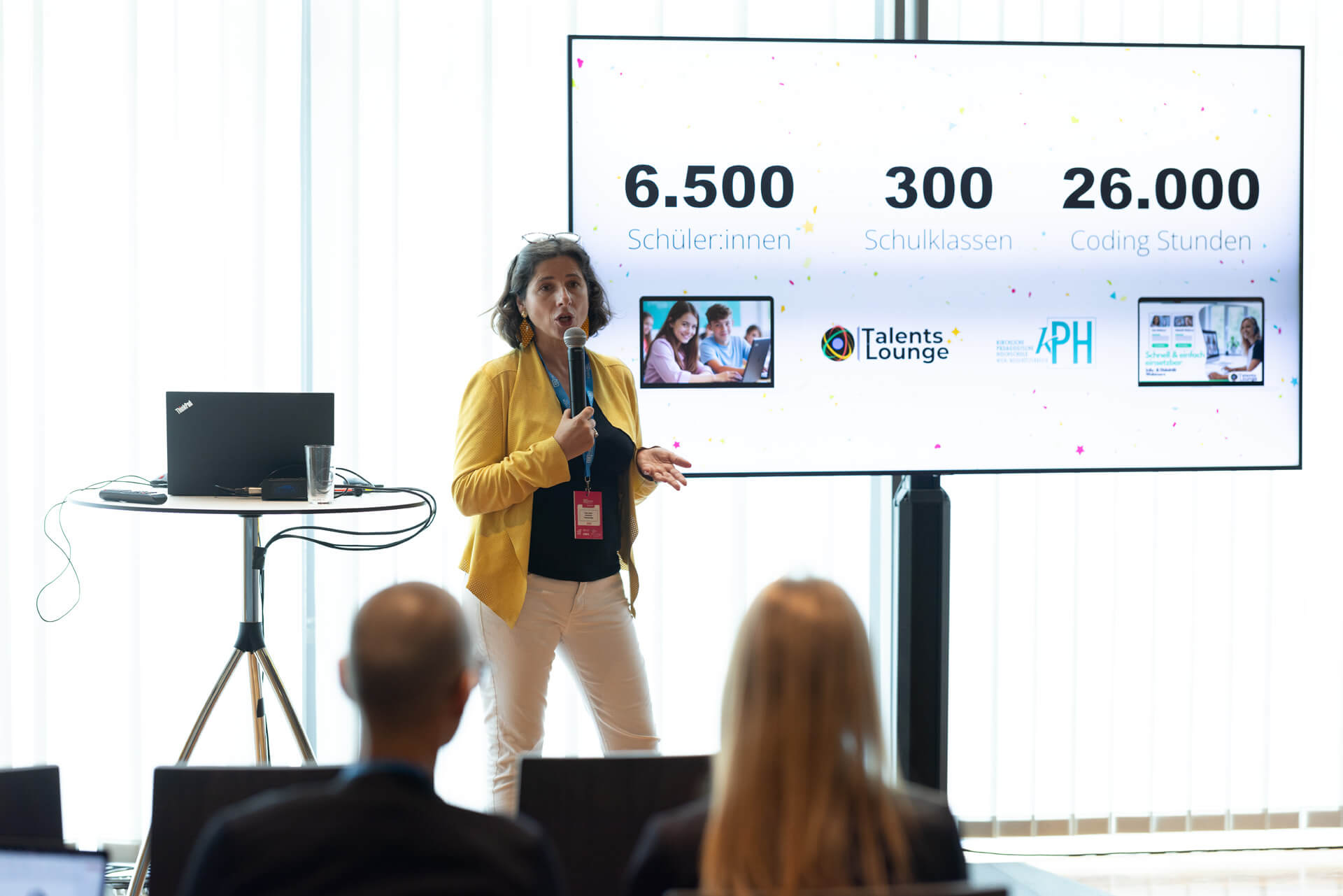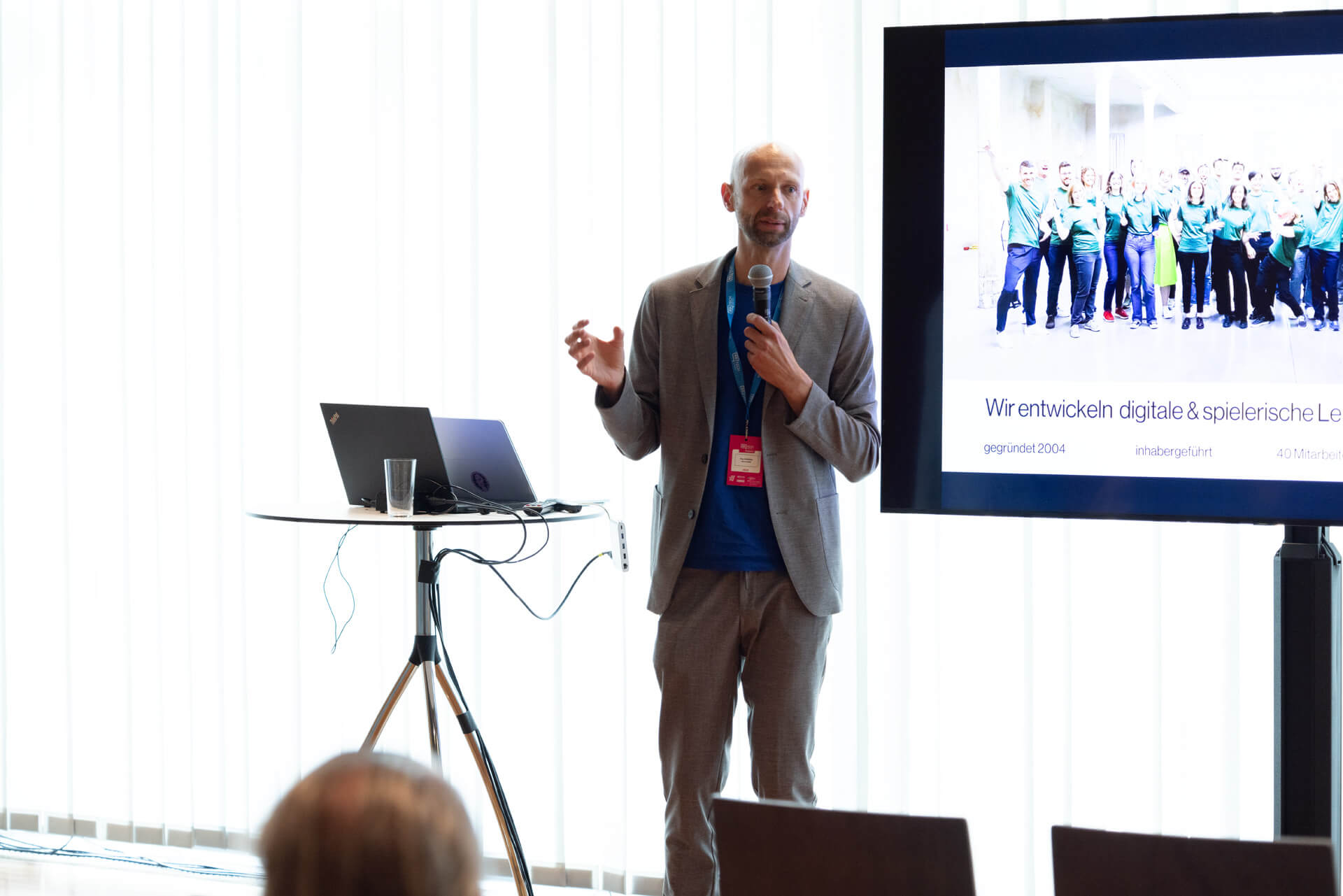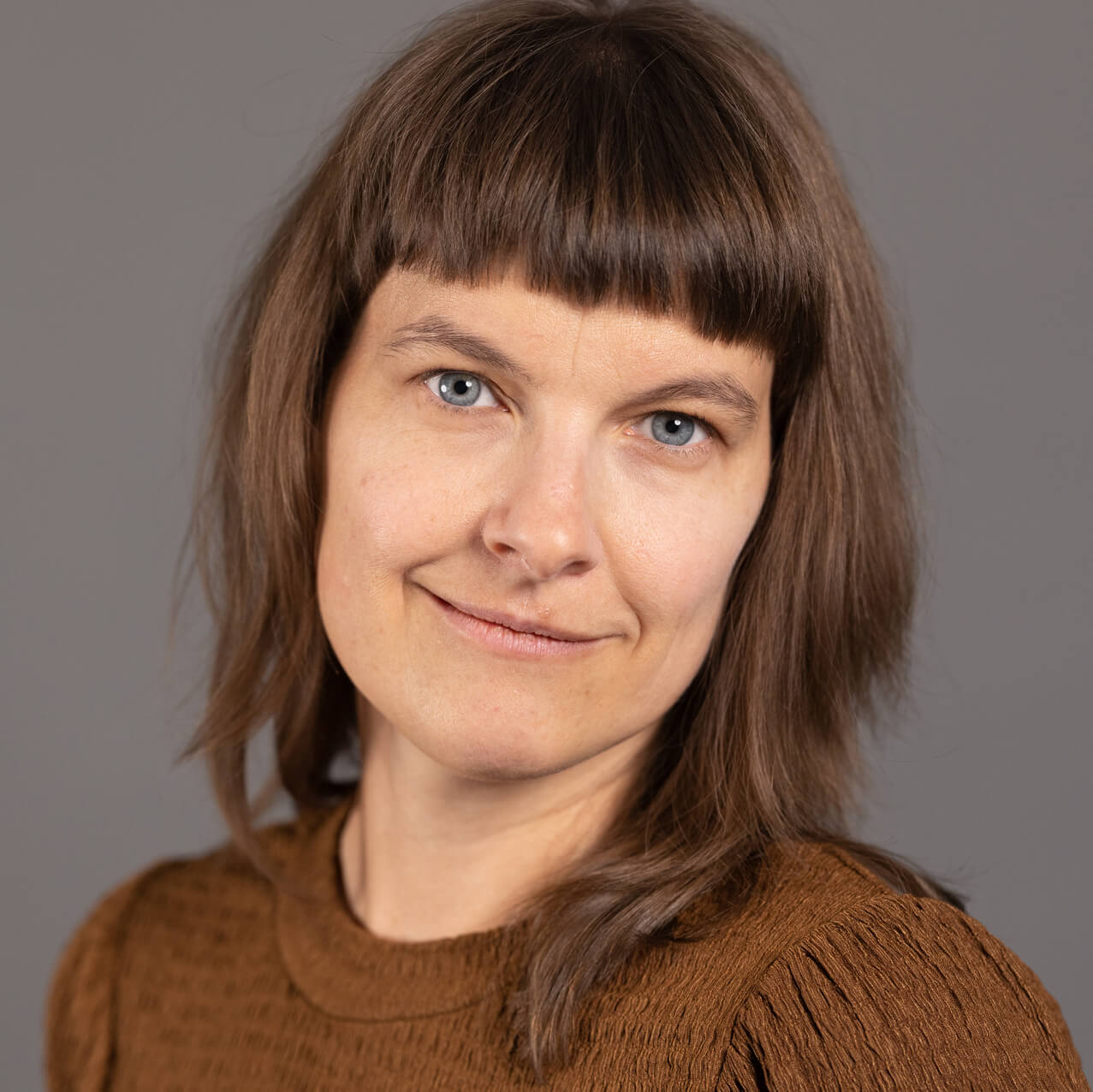Real-World Practice Meets Innovation: The Fourth EdTech Austria Summit
Under the theme “Real-World Practice,” the fourth EdTech Austria Summit brought together EdTech innovators, dedicated educators, representatives from politics and business, and curious guests for a day of exchange, inspiration, and shared learning at the Salzburg Congress.
The program? A diverse mix featuring Tech Tasting in the exhibition area, the EdTech Austria Fellowship Showcasing Area, three panel discussions, two keynotes, 6×5-minute learning sessions, numerous project presentations and workshops, an open discussion format, and the awarding of quality seals to 42 learning apps.
For the first time, MINT Salzburg joined the Summit—this STEM initiative enriched the program with two talks, a fuck-up workshop, and a good-practice session.
A Day Full of Future Moments
This year’s Summit stood out in many ways. It showcased the diversity and potential of Austria’s rapidly growing EdTech ecosystem—something reflected in our network’s development: what started with 40 members has now grown to 168 EdTechs. It was also a milestone event, marking the conclusion of Austria’s first nationwide EdTech Fellowship—an emotional highlight for everyone involved.
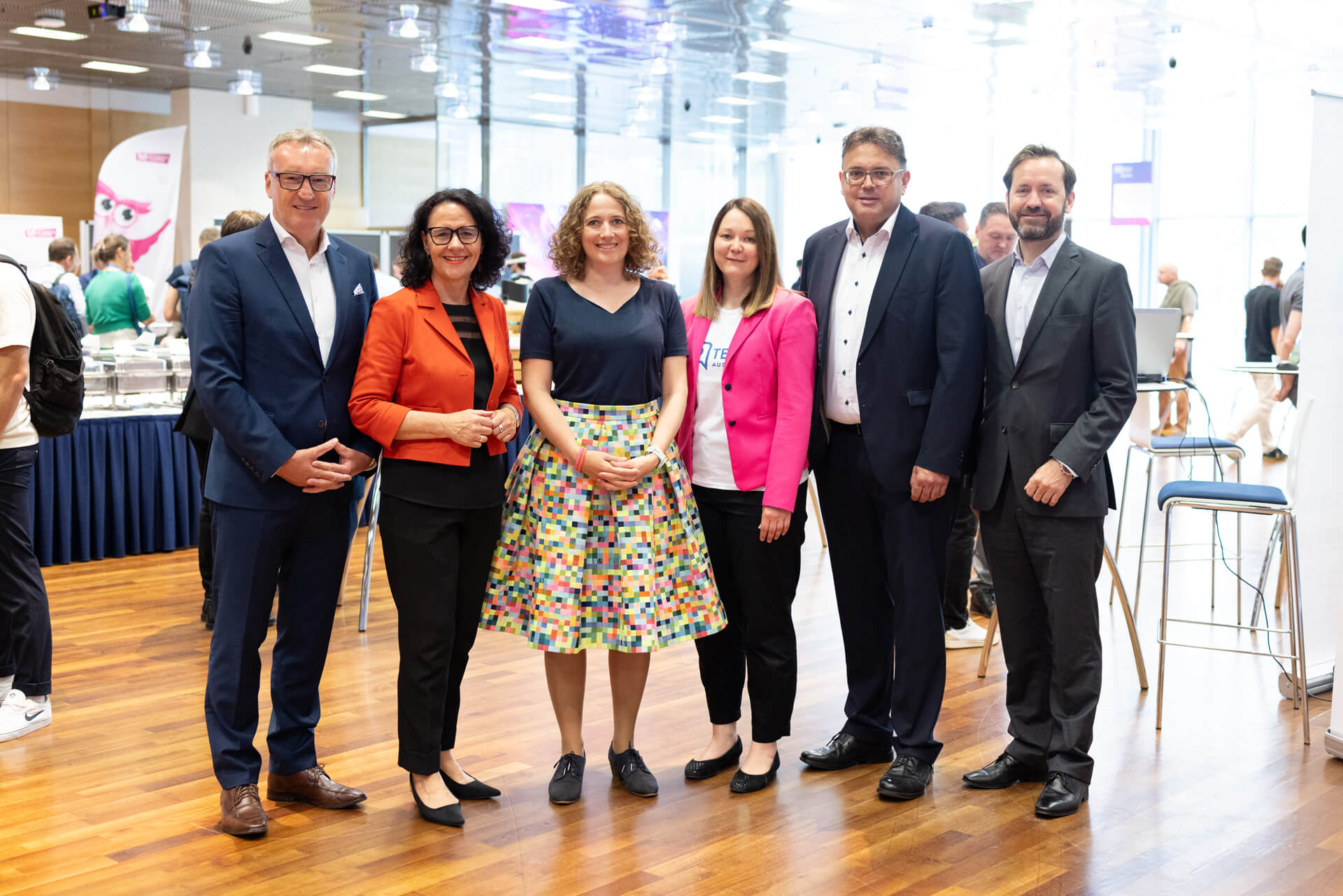
The importance of digital skills in today’s world was a shared belief among the guests of the opening panel. Daniela Gutschi (Salzburg Provincial Government), Martin Bauer (Austrian Federal Ministry of Education), Manfred Rosenstatter (Salzburg Chamber of Commerce), Melina Schneider (Austrian Economic Chamber), and Jakob Calice (OeAD) discussed the future of education and technology with moderator Ike Richson.
The key message: education must be accessible to all. It’s about enabling self-directed learning, fostering digital skills across all age groups, and creating awareness of data sovereignty. When it comes to artificial intelligence, Austria is still playing catch-up—but the country shines in robotics, with strengths in development, construction, and application.
With the motivating words “Never stop learning!” the Summit was officially opened—and indeed, there was much to learn for the many guests in attendance.
Leadership in the Age of AI
Zamina Ahmad, expert in AI and machine learning and CEO of shades\&contrast, opened her keynote with an exercise to get the audience thinking: What happens when AI encounters blind spots, and why is diversity of perspective so crucial in teams? The fact that only 22 percent of AI professionals are women—and that AI systems tend to favor male names in job application processes—clearly shows how even “neutral” datasets can discriminate when common sense is lacking.
Her solution: AI-augmented leadership—humans and AI working together as a dream team, guided by awareness, empathy, and wisdom. In this way, AI becomes more than just a tool for boosting productivity or automating tasks; it becomes a valuable partner in everyday work life. This human-AI symbiosis enables better and often fairer decisions than either could achieve alone.
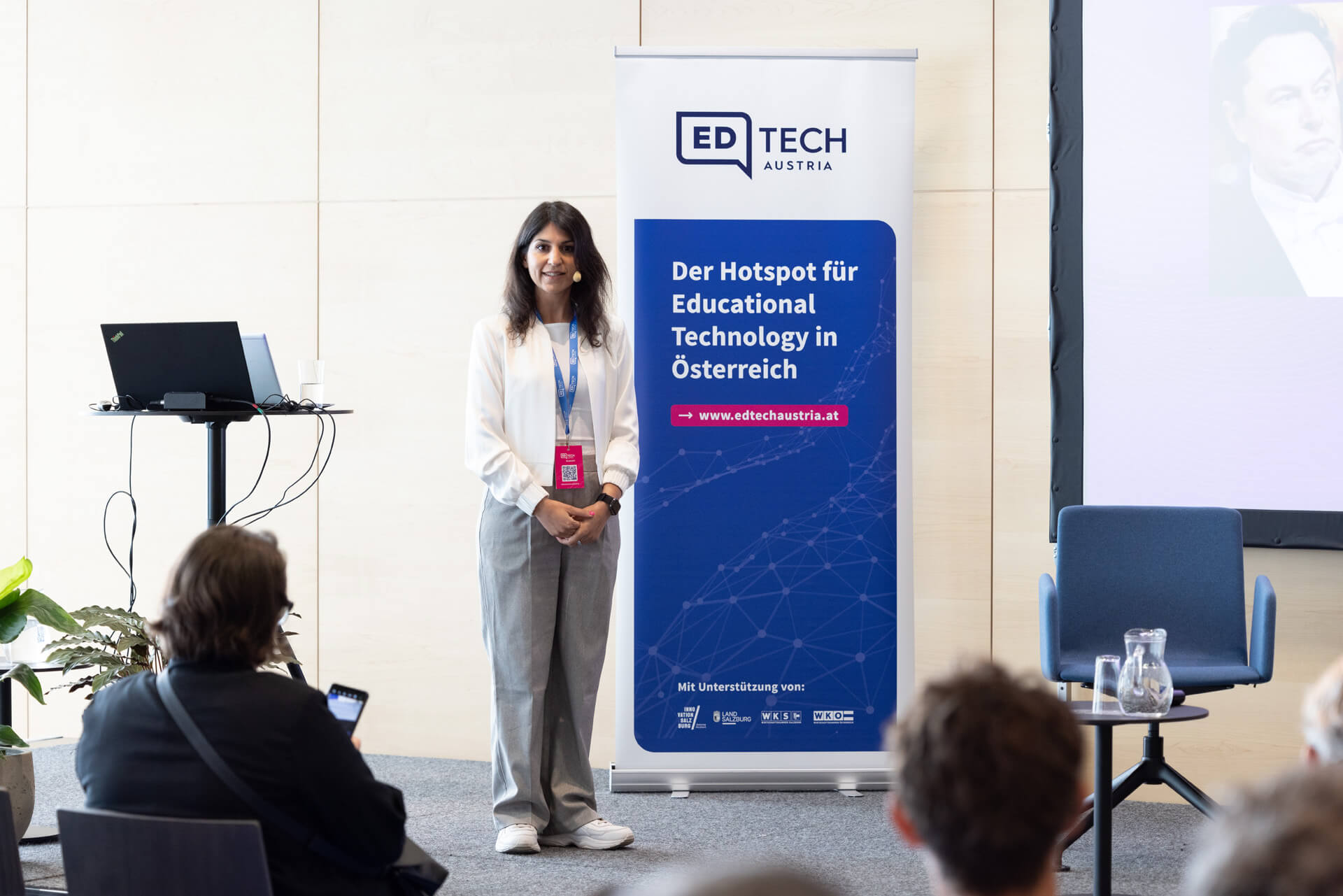
One of Zamina Ahmad’s key messages: always question AI-generated content. Don’t just accept it—challenge it. That’s the only way to ensure AI remains ethical and minimizes hallucinations, i.e., generating false information.
EdTech goes global – with Curiosity and Courage to Embrace the Gaps
The panel “Think Global – EdTech Pioneers Share Their Stories” shed light on the wide range of challenges and opportunities in digital education on a global scale. Tanja Wassermair (GeoGebra GmbH) emphasized the role of community in developing the platform, which is available in over 70 languages. International exchange, she noted, helps deepen the understanding of different approaches to mathematics. Andreas Hörfurter (common sense eLearning) highlighted the importance of taking local conditions seriously—such as lacking infrastructure—and working together with local experts to find solutions. Lilia Gerber (Moonshot Pirates) shared powerful experiences from Tanzania, where school is seen as a great privilege—in contrast to the often lower appreciation for education in Austria. Mathias Kutschera (Robo Wunderkind) added that there’s no universal formula for going global, but openness and curiosity—like in the USA, Robo Wunderkind’s main market—can open many doors.
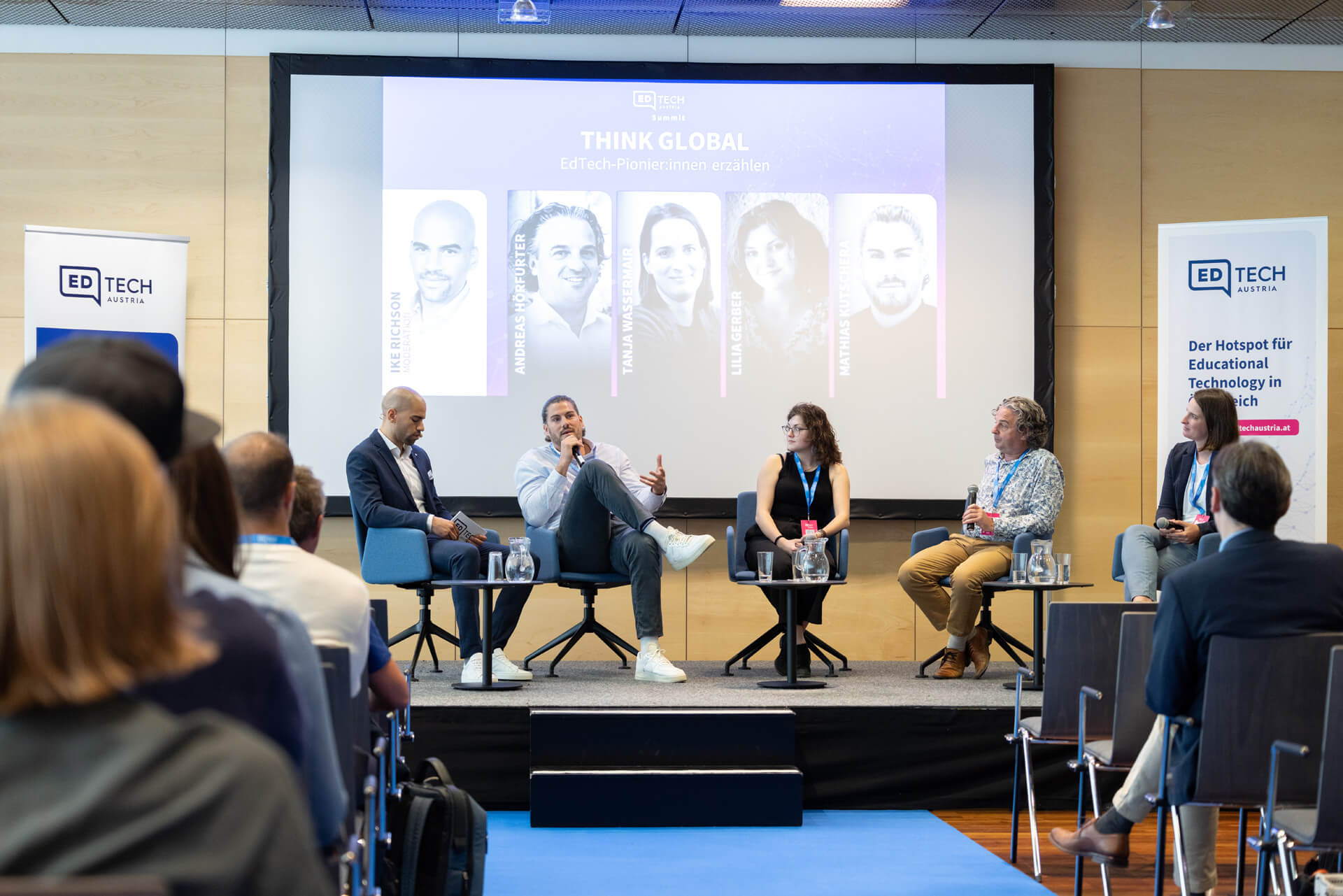
Healthy Learning, Digital Living – How Educational Technologies Can Empower Us
Digital skills today are more than just a nice-to-have – they’ve become a matter of wellbeing. Anyone using digital tools daily – from AI assistants like ChatGPT to social media – faces new challenges in learning how to engage with them in a healthy, balanced way.
The panel “Digital Humans – Health Needs Digital Skills” focused on how we can use digital tools to live healthier, learn better, and feel more empowered.
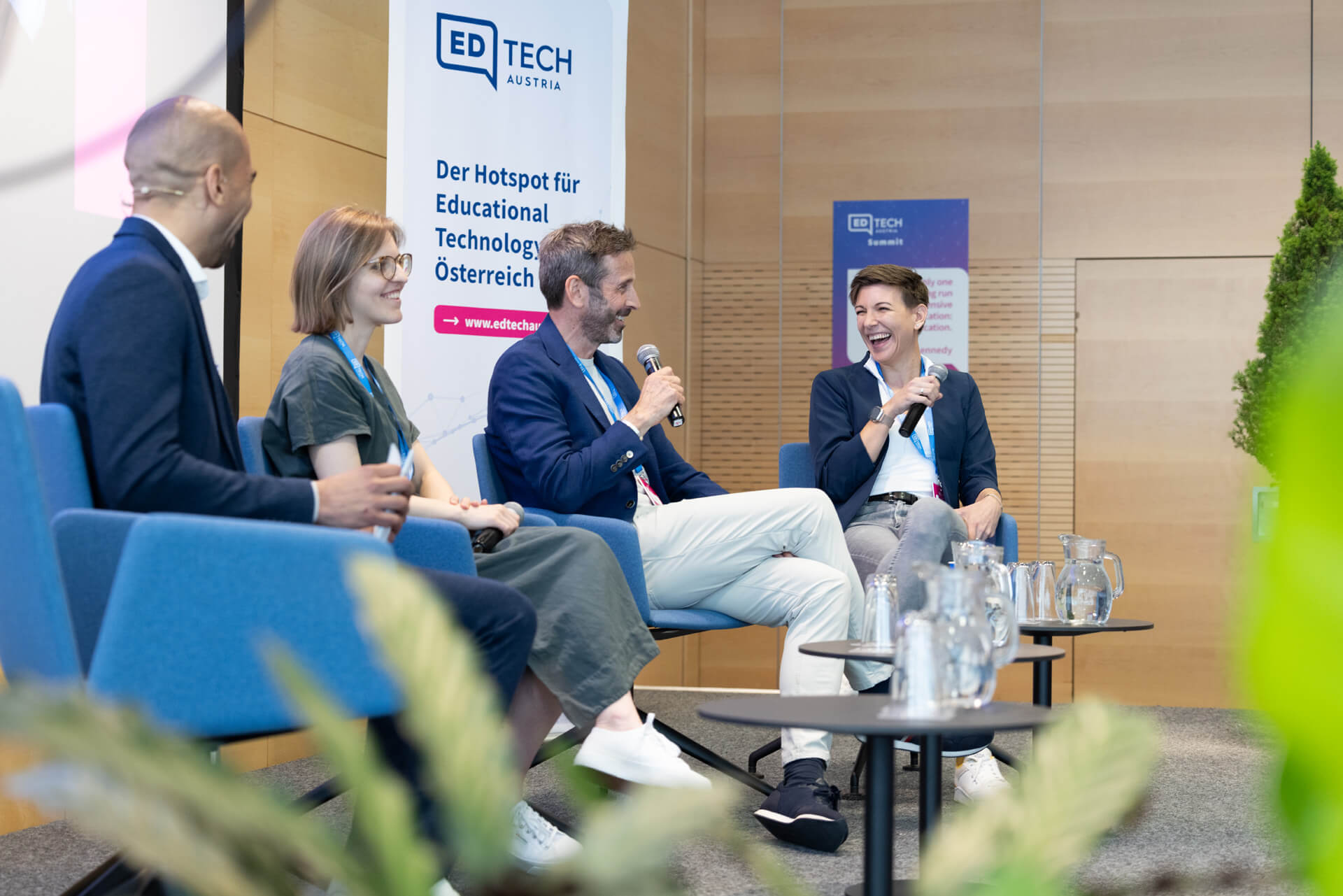
Julia Holzer (University of Vienna) emphasized that learning only succeeds when certain key conditions are met: a sense of achievement, social connection, and autonomy. Using ChatGPT to do your homework, she noted, can be counterproductive if it replaces a sense of self-efficacy and motivation. Rather than offering ready-made concepts, education should foster creativity, collaboration, and a healthy dose of “we can do this” spirit—especially when it comes to handling social media and emotional challenges. Evelyne Kern (öbv and lörn) summed it up succinctly: learning works best when someone believes in you. Teachers should create space for discovery, encourage learning, and reflect on their own school days: What would I have needed back then? Her appeal: see mistakes not as setbacks, but as opportunities. Sven Maikranz (Upstrive) highlighted how important a sense of belonging is, particularly for young people. Digital tools can act as bridges, making it easier to reach and support them. His message: focus more on building skills and nurturing mental health.
6×5-Minute Learnings – Insights from the EdTech Frontlines
“What’s your biggest learning?” – That was the question we asked six EdTech innovators, who took to the stage to share practical insights from their own journeys.
Joining the conversation: Thomas Layer-Wagner (Polycular), Evelyne Kern (öbv and lörn), Stefanie Susser (Hacker School Austria), Michael Maurer (eSquirrel), Asmita Banerjee (lablife), and Bernd Simon (Knowledge Markets). Their key takeaways from the past years can be summed up like this:
- Naivety and impatience are great assets in the beginning.
- Just get started and try things out!
- But: do your research – is there really a market for your idea?
- Ask yourself: will users actually want to pay for my product?
- And: what do I need to do to make my customers happy?
- Talk to people, build connections – but:
- Choose your partners wisely, and listen to their feedback.
- Think regionally or globally – depending on what you aim to achieve.
- Don’t fall in love with the solution – fall in love with the problem.
- And remember: sometimes the timing just isn’t right. If that’s the case:
- Be patient, and stay the course!
Playfully exploring the world – in the truest sense
In the interactive session “What’s better learned digitally – and what’s not?”, the audience didn’t just get a chance to join the conversation – they also experienced a science experiment both in analog and digital form. The hands-on format was led by Teresa Torzicky (BID), joined on stage by Paul Beyer-Klinkosch (SchuBu), Anna Gawin (DaVinciLab), and Raphael Riedler (PeP – Pongau entwickelt Potenziale).
The keynote that followed, titled “Game Changers in Education,” was all about the motto “Not just a game – it’s a game changer.” Johanna Pirker, professor of games engineering at TU Graz, explained why education today needs to happen differently. Since traditional classrooms don’t work for everyone, she focuses on digital approaches – and on the spaces where young people actually spend their time: platforms like TikTok, Fortnite, and Twitch.
What’s possible there? More than one might expect. Johanna Pirker brings knowledge into her Twitch streams, makes physics come alive in virtual labs, and shows that learning can be fun – without pressure, just because it’s cool. Video games today do more than entertain: they bring people together, encourage empathy, and help develop decision-making skills. If we want to reach young learners, we need to go where they feel at home.
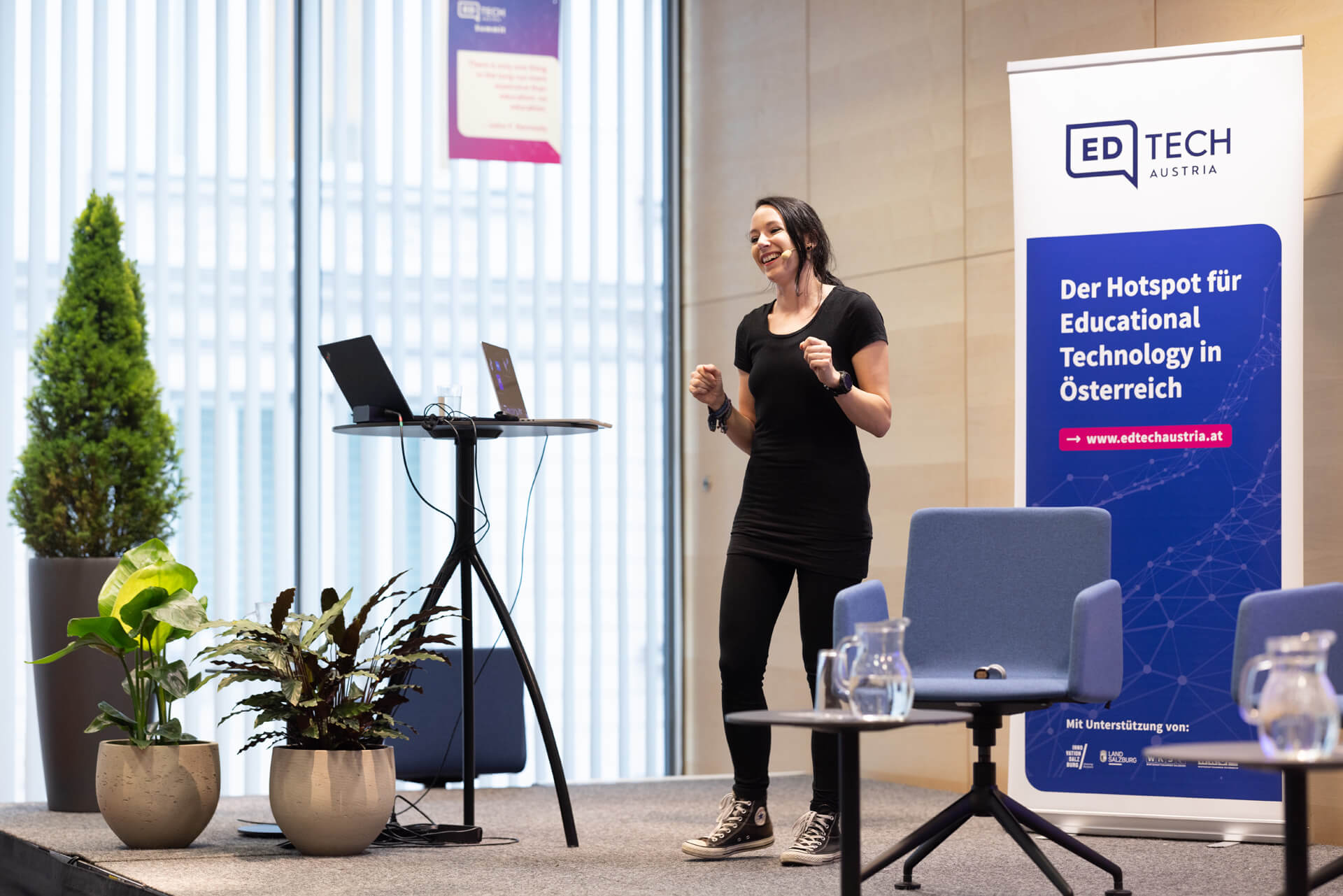
Rethinking education: spaces, opportunities, and digital ideas
The EdTech project presentations made one thing clear: whether in schools or apprenticeships, future-ready education requires new spaces, open ears, and a willingness to try something different.
The TalentsLounge by the KPH (Catholic University College of Education) demonstrated that it’s not just about education – it’s about creating spaces for experimentation. The new curriculum promotes interdisciplinary and project-based learning, which offers huge potential. Schools are teaming up with partners like DaVinciLab to shape these spaces together, because digital literacy affects everyone and can be embedded in any subject.
There’s also a lot happening in the field of apprenticeships. In collaboration with EdTech company ovos, vocational training is being reimagined. Why? Because there are just as many apprentices as there are students on the academic track – a fact that’s often overlooked. And while apprentices often lack time for structured learning, digital solutions can provide flexible, self-directed, and practical approaches. One example comes from LFI Tirol (Agricultural Training Institute) and MEDIASQUAD: how do you bring a calf birth into the classroom? The answer: with VR. These new methods are only possible when educators and developers listen to each other and learn to understand each other’s worlds.
Companies like starlim and sterner, as well as Talents\&Company, are also taking a critical look at their own apprenticeship programs. “We always thought we were the best,” they admitted – but data to support that belief was missing. With a new annual apprentice survey, the goal is to better understand young people and support them more effectively.
Closing and outlook
The fourth EdTech Austria Summit concluded with the awarding of quality seals to 42 learning apps, followed by plenty of time for inspiring conversations and relaxed networking. A big thank you to everyone involved for the great collaboration!
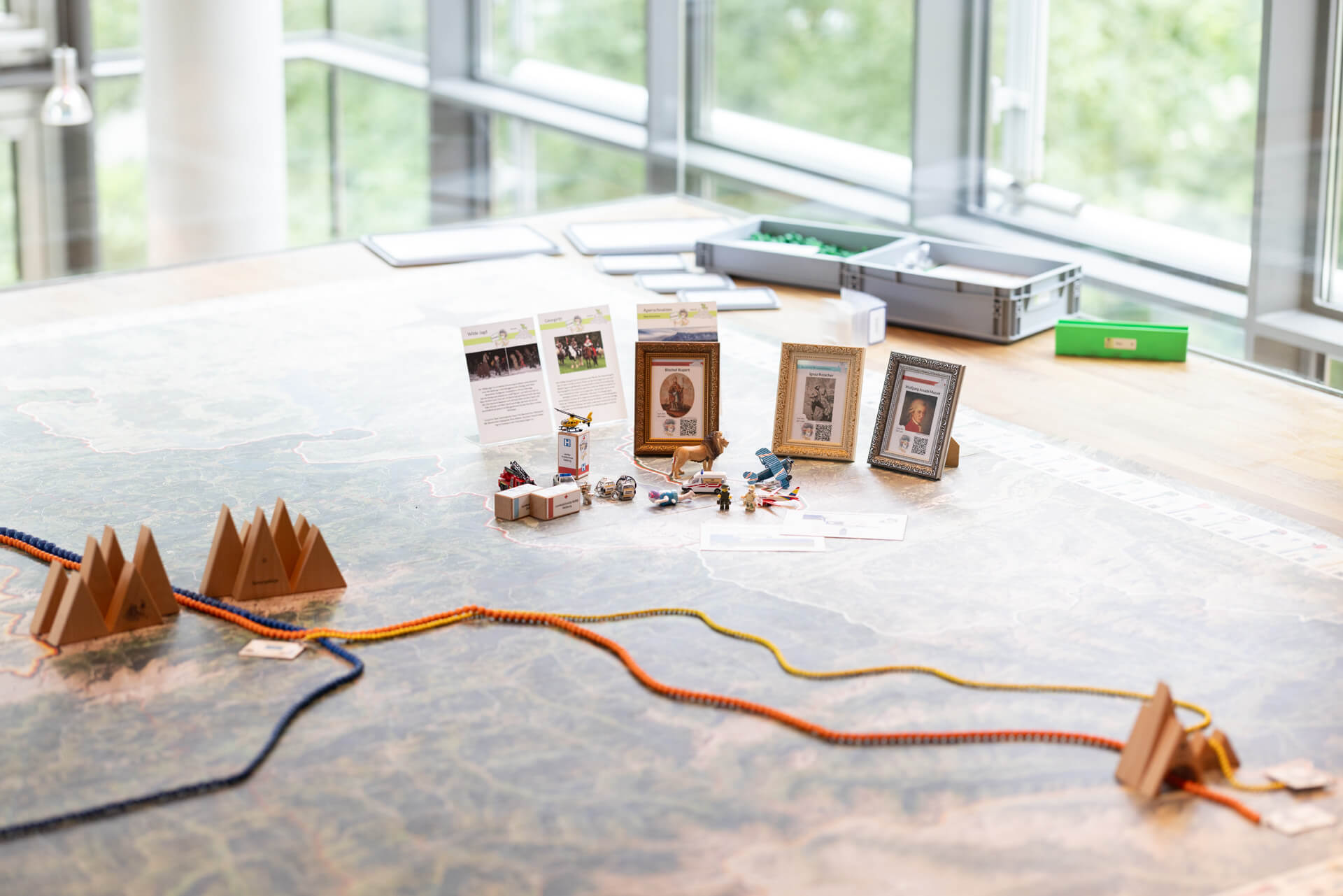
More articles
The following articles might also interest you.
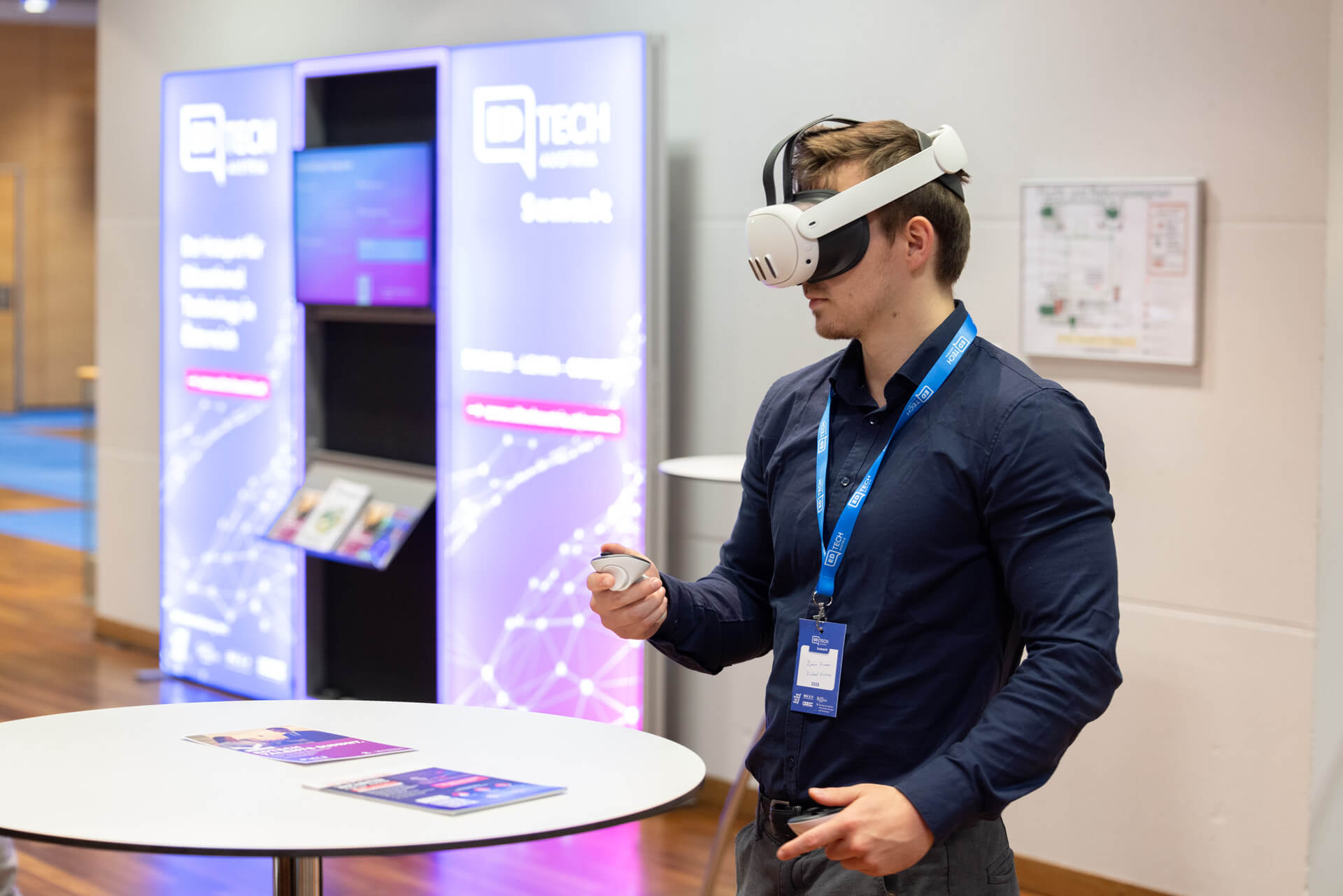
GenAIedTech: From Human to Machine
18. December 2025

Digital Roadshow: Learning Apps Marketplace
18. December 2025
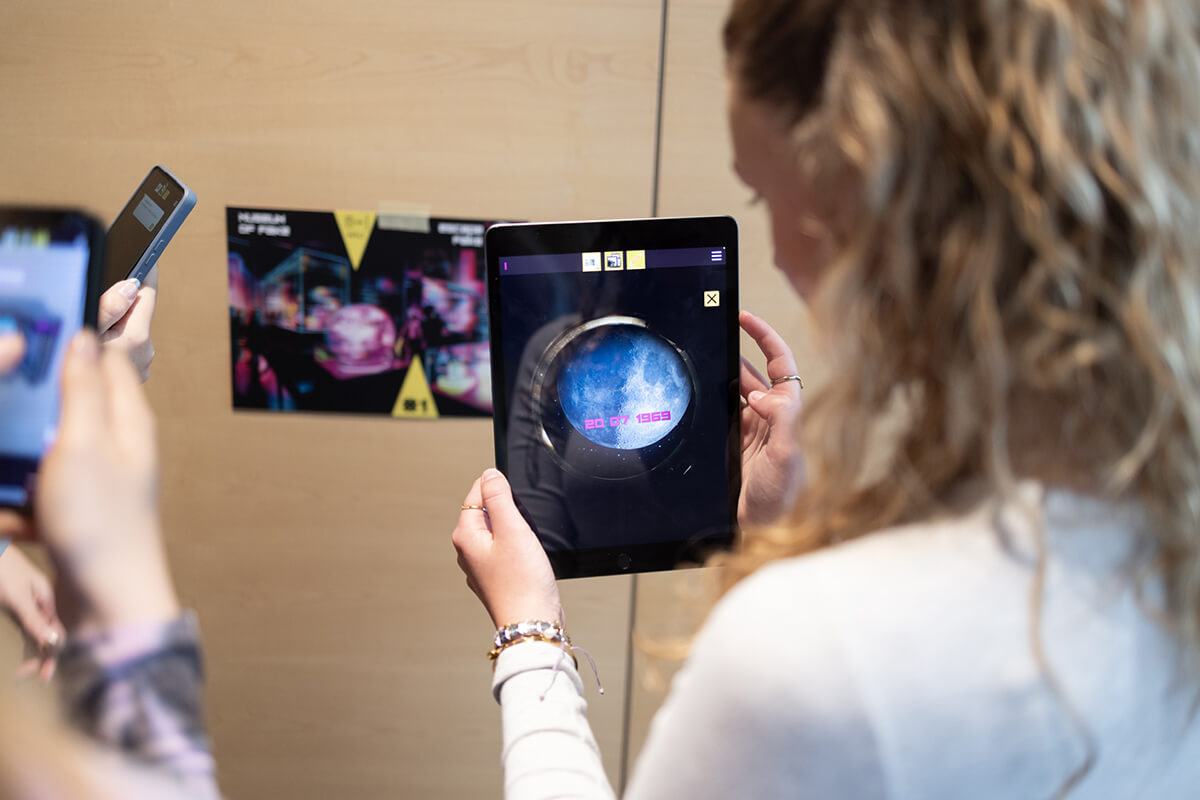
AR, VR and XR: Shaping Learning through Virtual Worlds
30. June 2025
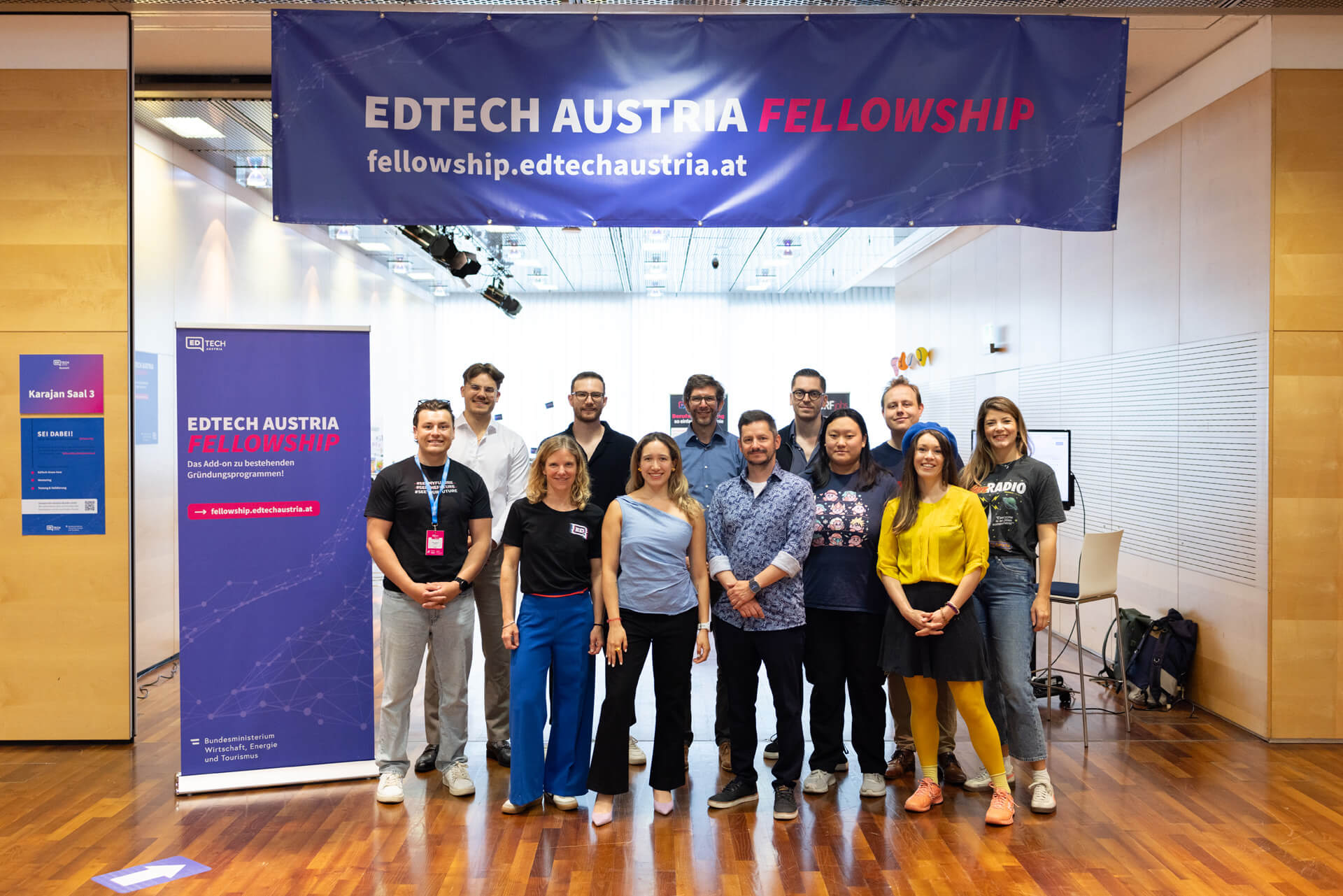
EdTech for all, all for EdTech – shaping the world of education together
18. June 2025
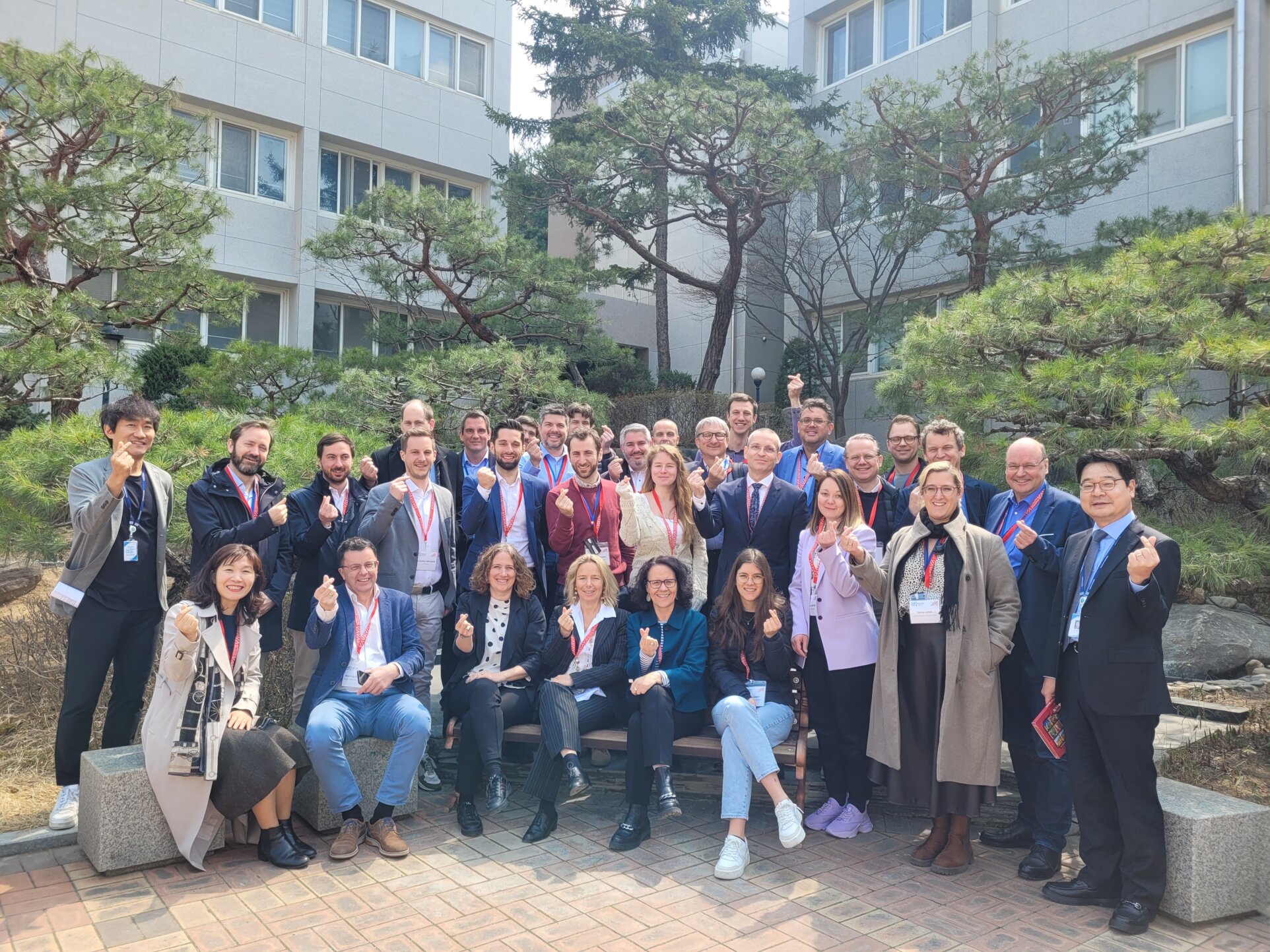
South Korea: How technology, culture and the courage to innovate are shaping education
30. April 2025
